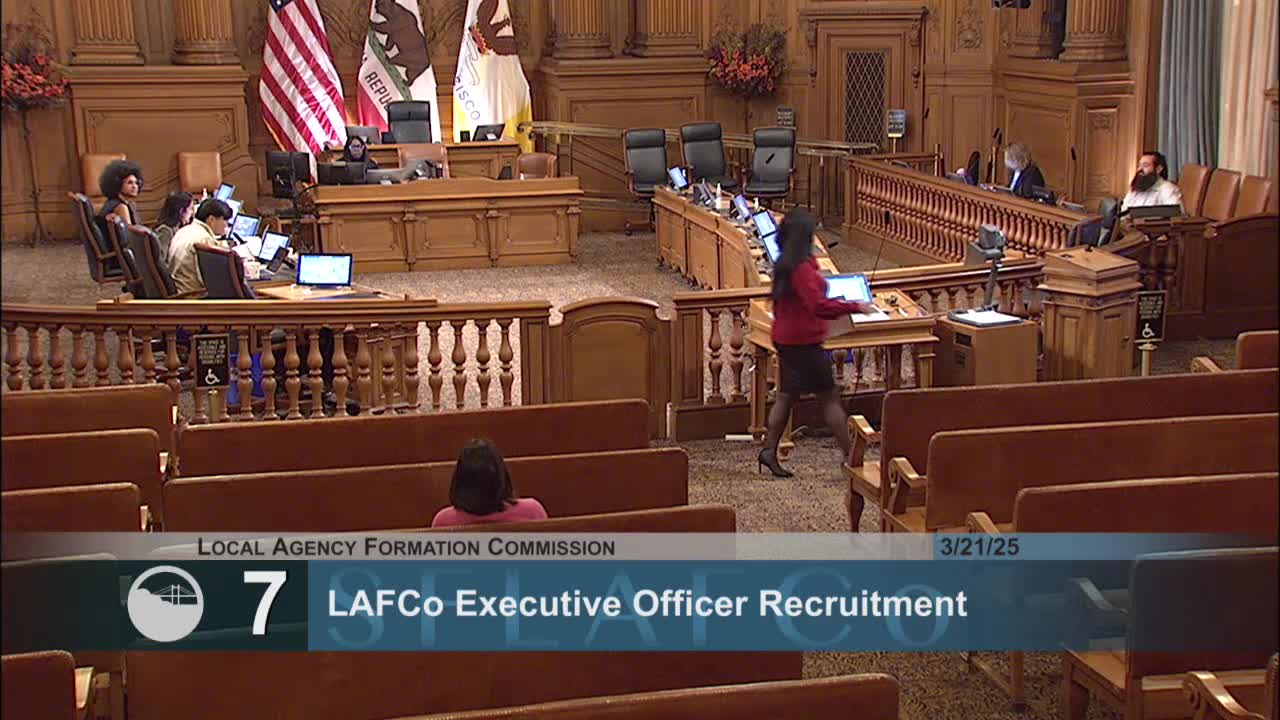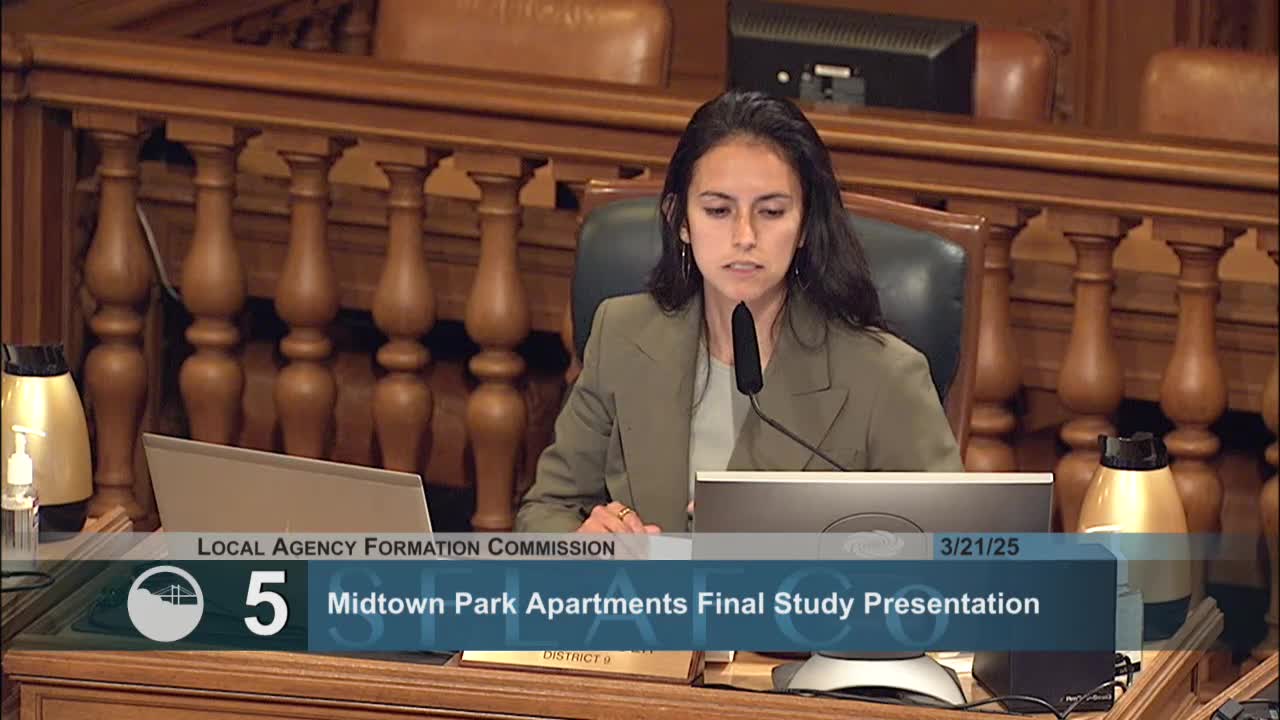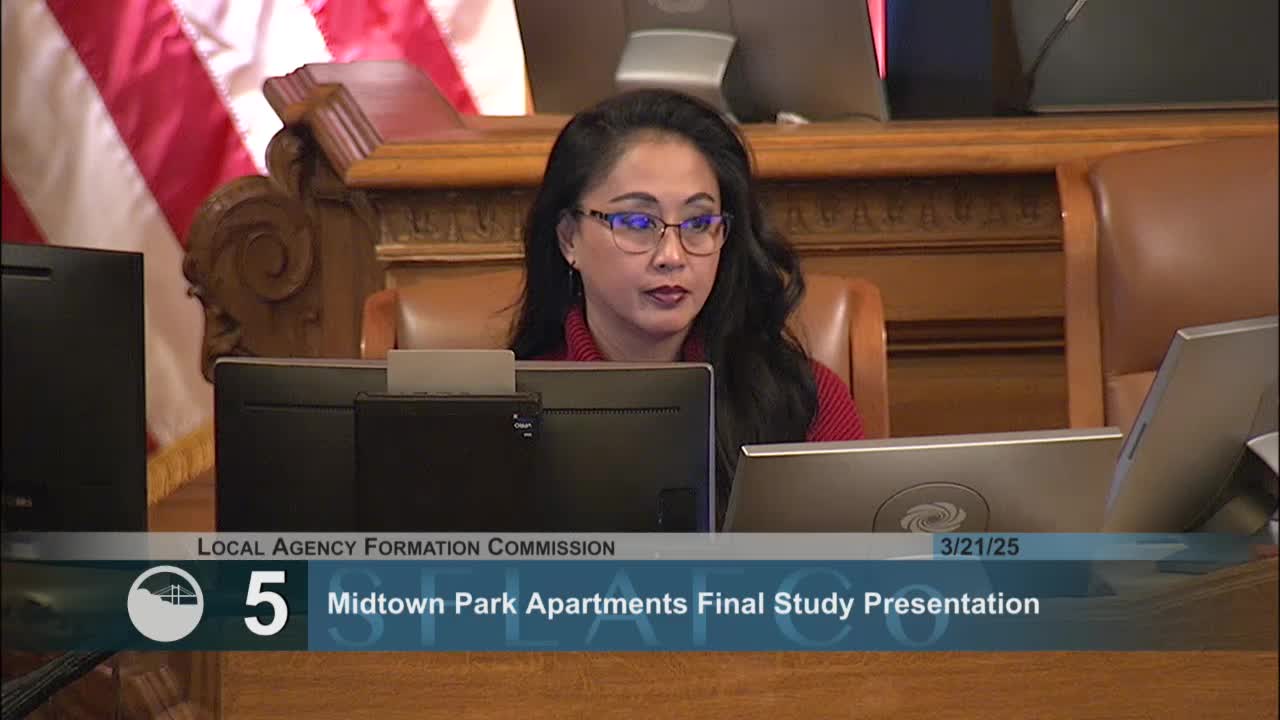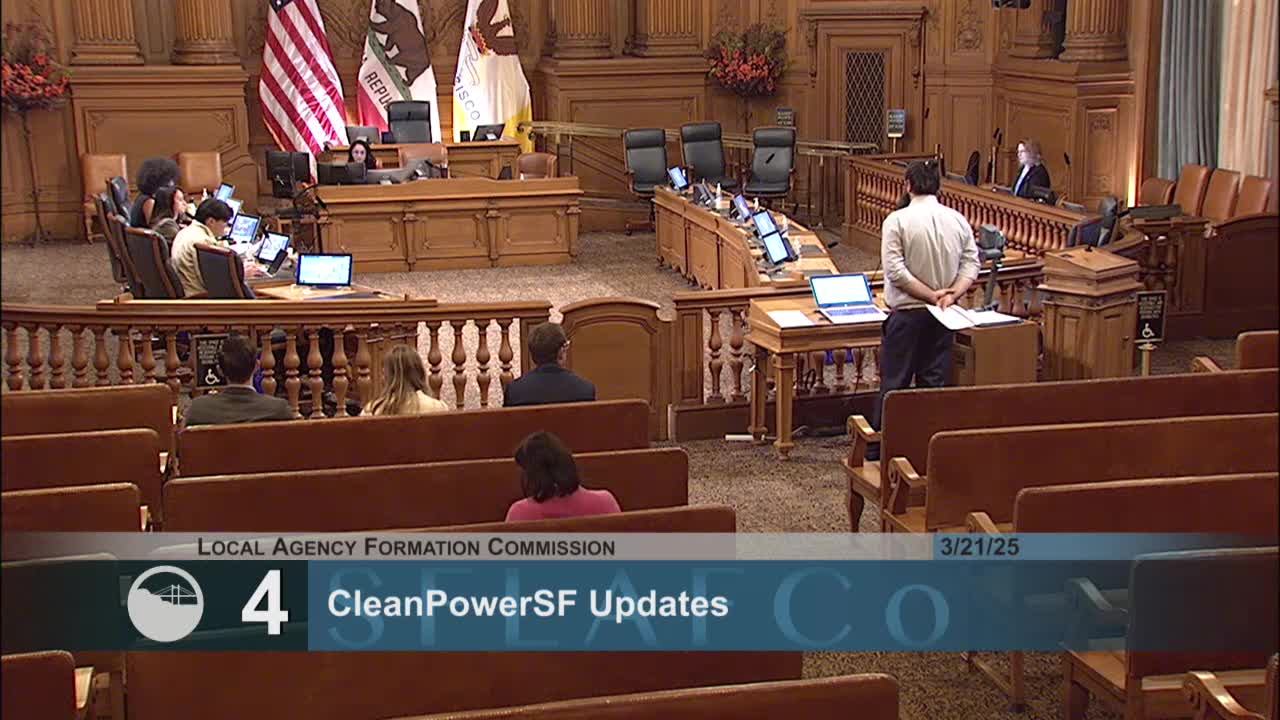Article not found
This article is no longer available. But don't worry—we've gathered other articles that discuss the same topic.

LAFCO approves executive officer job description, recruitment timeline and panel process

LAFCO adopts proposed FY2025–26 budget; commissioners ask PUC to restore $593,120 MOU funds

Consultants present Midtown Park Apartments final study; recommend $13 million phased rehab and resident control measures

